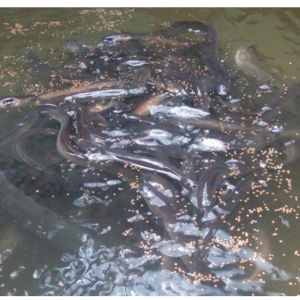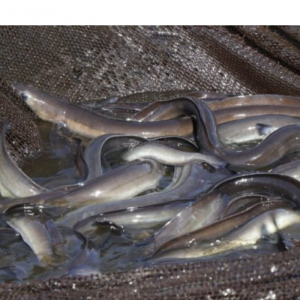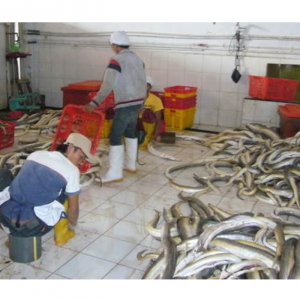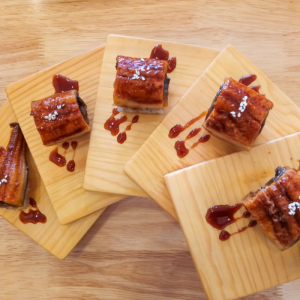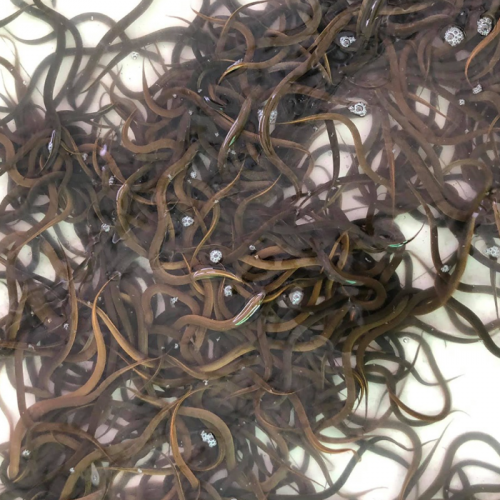
Feeding Eels with Black Soldier Fly Larvae
| Fri, 18 Jun 2021 - 09:36
Black soldier fly larvae meal is a potential ingredient to replace fishmeal and fish oil as a specialized source of protein and lipids.
Insects are a rich source of protein, lipids, vitamins and minerals. Therefore, the use of insect meal to replace fish meal is becoming more and more popular in the aqua feed industry in many countries. Insects will have high feed conversion efficiency, they can grow quickly and reproduce easily even when the nutrient source is low. Insects also accumulate fat easily, especially when they are young.
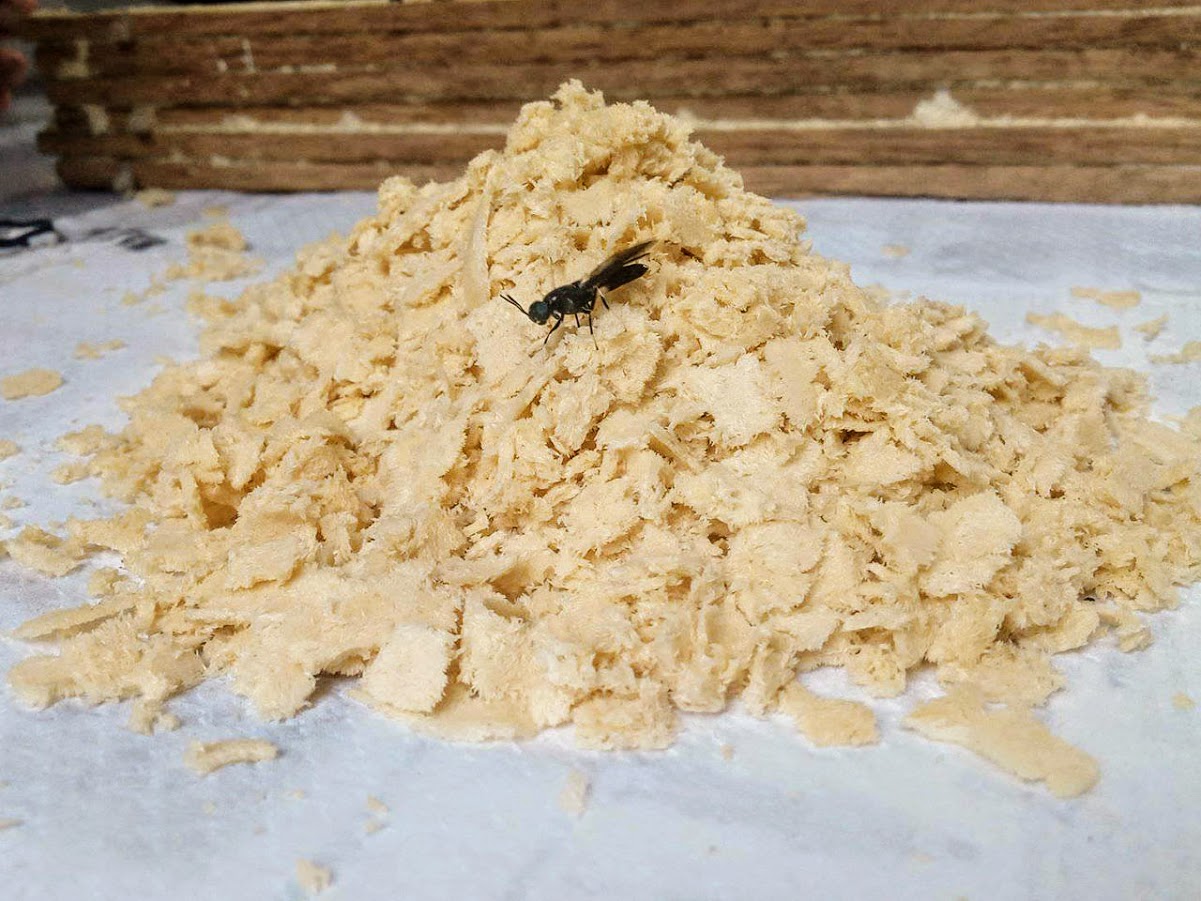
Black soldier flies are promising insects in aquafeeds. Photo: Fb Black soldier fly.
The black soldier fly is a promising insect, used in aquafeeds. Black soldier fly larvae contain about 42% protein, 35% lipid and contain many amino acids. Especially the amount of saturated fat lauric acid and linoleic acid is much higher than in fishmeal. Black soldier fly (HI) larvae meal is a potential ingredient to replace fishmeal and fish oil as a specialized source of protein and lipids. The effectiveness of black soldier fly larvae meal in the diet has also been demonstrated in many other aquatic species such as rainbow trout, carp...
Eel farming is a popular model nowadays, due to its delicious taste and stable resale price. Normally, when raising eels, they will use protein sources from earthworms and need to use earthworms to make food for eels more attractive. The experts found that the black soldier fly could be a potential source of proteins and lipids for use in eel feed.
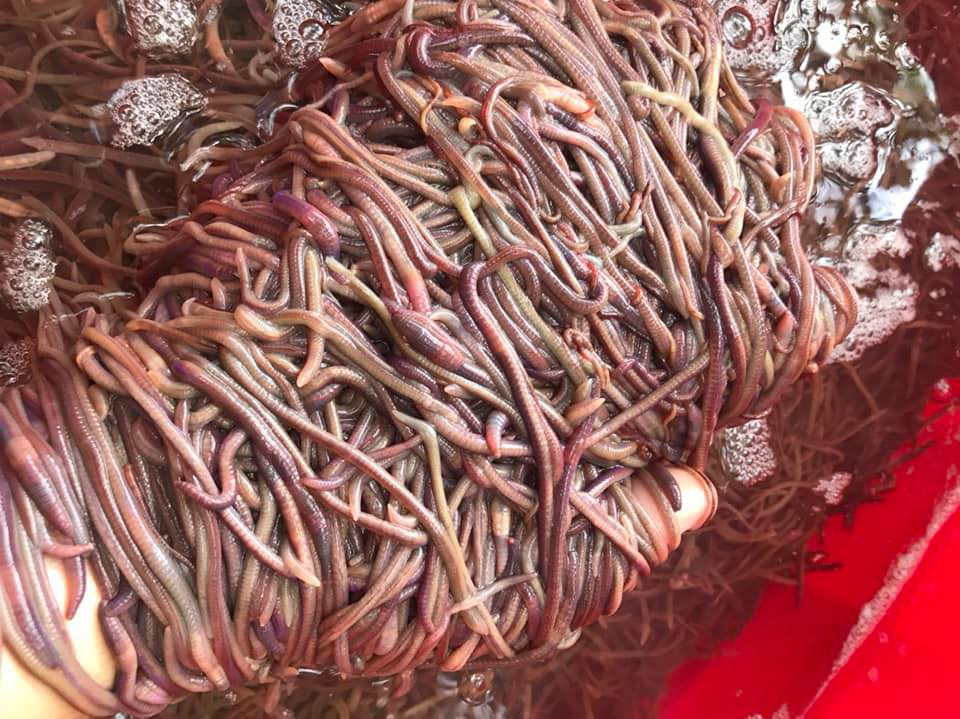
Worms are often used to make food attractive to eels. Photo: Fb Worms in the West.
After the substitution trial, the growth rate was significantly increased when the eels were fed black soldier fly larvae meal, and the FCR was also much lower than when the eels were fed fishmeal. Plus the reduced crude lipid content in eel meat. The appropriate rate of black soldier fly addition ranged from 5.26% -15.78%. The active ingredients in the black soldier fly larvae meal further improved the growth performance, increasing the amount of saturated fatty acids required for the metabolic and reproductive reactions of the eels.
Stiffness, toughness, adhesion and elasticity are physical indicators used to evaluate muscle texture. In this test, eel muscle cohesion decreased when black soldier fly larvae meal was supplemented and stiffness was significantly increased. These changes may be due to an increase in the diameter of the muscle fiber and the thickening of the muscle bundle. In addition, the lipase enzyme activity in the eel intestine increased.
Also read: Feed Trial Successfully Replaces Fishmeal with Black Soldier Fly Larvae for Farmed Atlantic Salmon
It is possible that the fatty acids in the black soldier fly larvae meal are not beneficial for the digestion of the eels, so they secrete more lipase to aid in the digestion of fat. And it should be noted, lower levels of black soldier fly larvae meal are not harmful to the eels. However, when this supplement level is too high, it will cause negative effects on the liver function of eels.
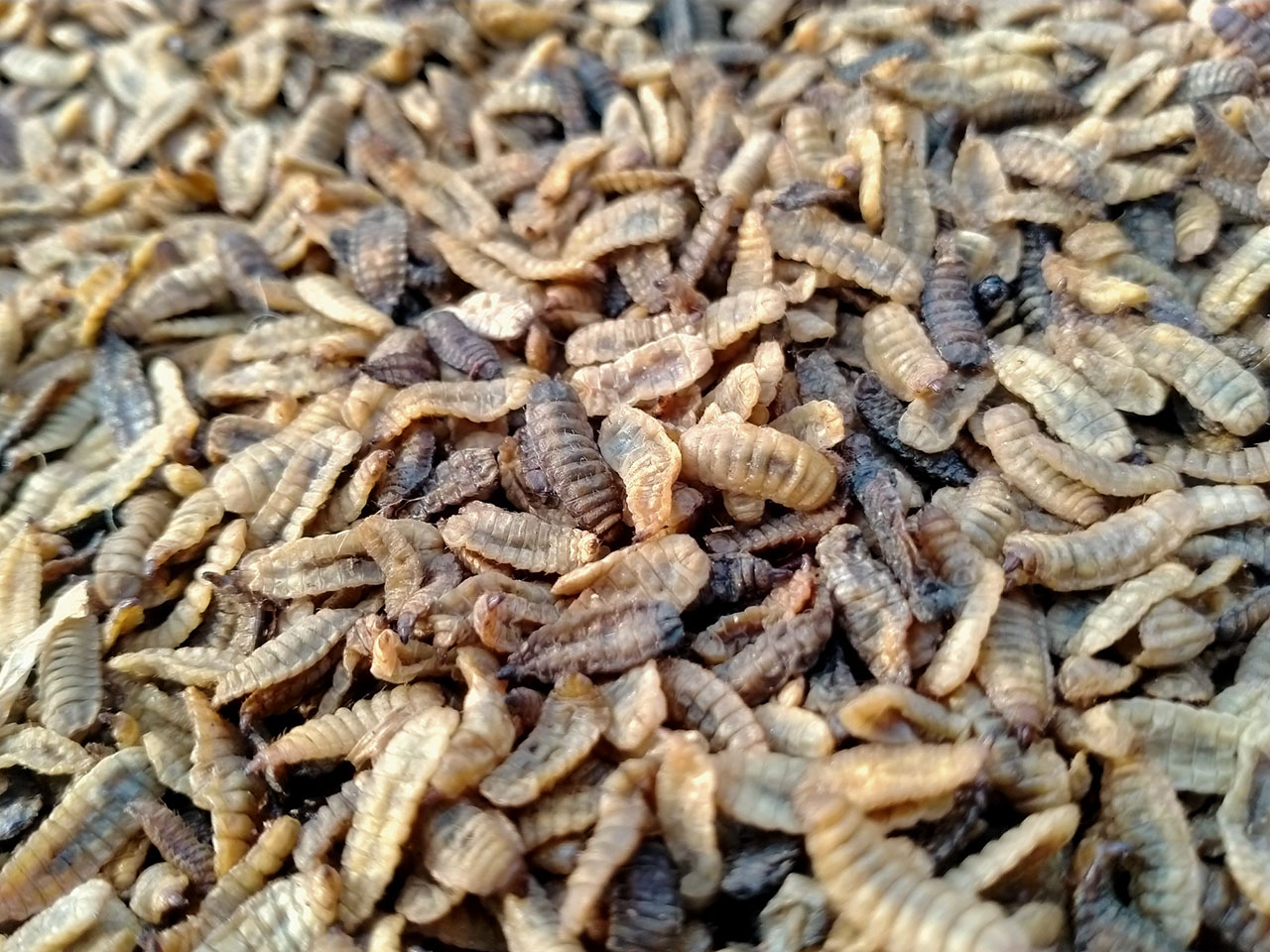
Dried black soldier fly larvae. Photo: Fb Black soldier fly.
The diversity and abundance of the gut microbial community increased as the proportion of black soldier fly larvae meal increased, which was beneficial for intestinal homeostasis. Firmicutes gram-positive bacteria are one of the most abundant bacteria groups in the intestinal tract of eels. They promote fatty acid absorption by the epithelium, leading to accumulation of lipid droplets in enterocytes and other tissues.
Also read: Black Soldier Fly Larval Production in a Stacked Production System
However, the addition of black soldier flies in the eel feed reduced the absorption capacity in the eel intestine. If eels have an imbalance of fatty acids, it can reduce their ability to digest lipids and use energy.
In summary, the addition of black soldier fly to the feed had a beneficial effect on eels, with 15.78% improved growth performance and gut microbiota balance. The present trial proves that it is feasible to replace fishmeal with black soldier fly larvae meal in eel diets. However, a fatty acid imbalance may limit this substitution. So separating the black soldier fly into meal and defatted oil could be a better approach, to replace fishmeal and fish oil in eel feed.
Source: Tepbac.com













